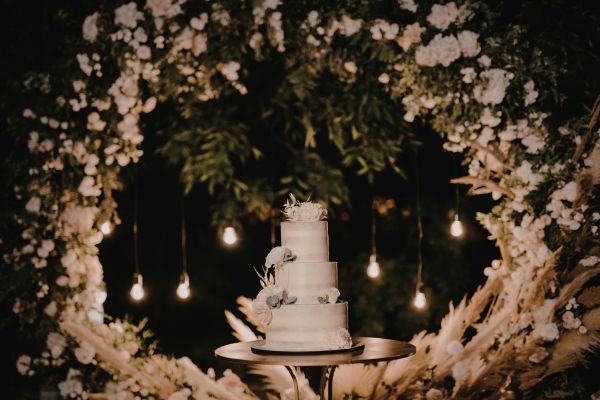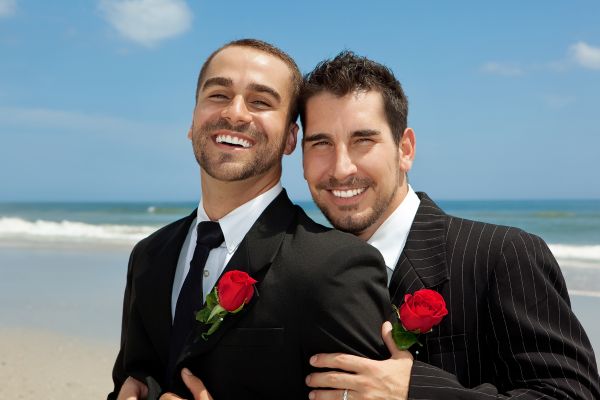What is a Groomsman? A Complete Guide to Understanding the Role
When planning a wedding, you often hear about the bride, groom, bridesmaids, and best man. But what about the groomsman? What is a groomsman, and what role does he play in the wedding? Whether you’re preparing for your big day or just curious about the ins and outs of wedding traditions, understanding the role of a groomsman is essential.
The Tradition of the Groomsman
Weddings are steeped in tradition, with each role in the ceremony carrying its own significance. The groomsman, a role often overshadowed by the best man, is more than just a fancy title. In many ways, groomsmen are the backbone of the wedding party, supporting the groom in various capacities. But before we dive into the specifics, let’s start with the basics: what is a groomsman?
What is a Groomsman?
A groomsman is a male attendant to the groom in a wedding. Traditionally, groomsmen are close friends, family members, or even colleagues of the groom. They’re chosen for their special relationship with the groom and are honored with the task of standing by his side on one of the most important days of his life. The role of a groomsman has evolved over time, but at its core, it remains a position of trust, honor, and responsibility.
The Role and Responsibilities of a Groomsman
So, what exactly does a groomsman do? While the role may seem straightforward, it’s actually multi-faceted and varies from wedding to wedding. Here’s a closer look at the typical responsibilities of a groomsman:
1. Supporting the Groom
One of the primary duties of a groomsman is to support the groom. This support comes in many forms, from helping with wedding preparations to providing emotional support on the big day. Whether it’s picking up the tuxedos, coordinating with the best man, or simply offering a listening ear, groomsmen play a crucial role in ensuring the groom is calm and collected.
2. Attending Pre-Wedding Events
Groomsmen are often expected to attend various pre-wedding events, such as the engagement party, bachelor party, and rehearsal dinner. These events are not just for fun; they help the wedding party bond and ensure everything runs smoothly on the wedding day. Groomsmen should be ready to participate, help with planning, and contribute to the overall experience.
3. Assisting with Wedding Logistics
From helping to set up the venue to managing last-minute details, groomsmen often find themselves handling various logistical tasks. This might include coordinating transportation, ensuring guests are seated, or even making sure the groom has everything he needs, from his cufflinks to his vows.
4. Walking Down the Aisle
During the ceremony, groomsmen typically walk down the aisle, either escorting bridesmaids or standing by the groom’s side. Their presence symbolizes their support and commitment to the groom, adding to the overall significance of the ceremony.
5. Participating in the Reception
Groomsmen are usually involved in the reception, whether it’s giving a toast, participating in the wedding party dance, or helping to keep the festivities lively. Their role is to ensure the guests are having a good time and that the groom and bride can enjoy their special day without any hitches.
The History of the Groomsman: A Glimpse into the Past
The role of the groomsman has deep roots in history. Originally, groomsmen were more than just close friends or family members—they were protectors. In ancient times, groomsmen were tasked with safeguarding the bride and groom from potential threats, including rival suitors and bandits. These “bodyguards” would stand by the groom, ready to defend the couple if necessary.
Over time, the role evolved from a protective duty to a more symbolic one, focusing on the support and companionship of the groom. However, the essence of loyalty and trust has remained, making the role of a groomsman an enduring tradition.
Choosing the Right Groomsman: What to Consider
Selecting your groomsmen is no small task. After all, these individuals will stand by your side on one of the most important days of your life. So, how do you choose the right groomsmen?
1. Relationship with the Groom
The most important factor is the relationship between the groom and the potential groomsman. Close friends, brothers, cousins, and even fathers often make excellent groomsmen because of their personal connection to the groom.
2. Reliability
A groomsman needs to be reliable. From showing up to events on time to handling responsibilities without constant reminders, reliability is key. The last thing you want is to worry about whether your groomsmen will follow through on their commitments.
3. Personality and Social Skills
Since groomsmen often interact with guests and participate in various social events, it’s essential to choose individuals who are personable and can engage with others. A groomsman should be someone who can bring positivity and energy to the occasion.
4. Availability
Weddings require time and effort, and groomsmen should be able to commit to the process. Consider the availability of your potential groomsmen, especially if they live far away or have demanding schedules.
Groomsman Attire: Looking the Part
Once you’ve chosen your groomsmen, it’s time to think about attire. The groomsmen’s outfits should complement the groom’s attire and fit the overall theme of the wedding. Here are some key points to consider:
1. Coordinating with the Groom
The groomsmen’s attire should be coordinated with the groom’s outfit. Whether it’s matching suits or complementary colors, the goal is to create a cohesive look. Often, the groom will wear something slightly different, such as a unique tie or boutonniere, to stand out.
2. Considering the Wedding Theme
The wedding theme plays a significant role in determining the groomsmen’s attire. For a formal wedding, black-tie suits or tuxedos are appropriate, while a beach wedding might call for lighter fabrics and more casual styles.
3. Comfort is Key
While style is important, comfort should not be overlooked. Groomsmen will be on their feet for most of the day, so it’s essential that their attire is comfortable and allows for easy movement.
Groomsman Etiquette: Do’s and Don’ts
Being a groomsman comes with certain expectations and responsibilities. To ensure you’re fulfilling your role properly, here are some key etiquette tips:
Do: Communicate with the Groom
Stay in regular communication with the groom, especially as the wedding day approaches. Make sure you’re clear on your responsibilities and timelines.
Don’t: Overshadow the Groom
While it’s great to have fun and enjoy the experience, remember that the day is about the groom and the bride. Avoid stealing the spotlight or causing unnecessary distractions.
Do: Offer to Help
Be proactive in offering help, whether it’s with planning the bachelor party or assisting with wedding day logistics. Your willingness to help will be greatly appreciated.
Don’t: Overindulge
Weddings are a time for celebration, but it’s important to keep your behavior in check. Avoid overindulging in alcohol, especially during key moments like the ceremony or speeches.
FAQs About Groomsmen
Q: How many groomsmen should a groom have?
A: The number of groomsmen varies depending on the size and style of the wedding. Typically, a groom will have between two to six groomsmen, but there’s no hard and fast rule. The most important thing is to choose individuals who are meaningful to the groom.
Q: Can a woman be a groomsman?
A: Absolutely! In modern weddings, gender roles are becoming more flexible, and it’s not uncommon for a close female friend or family member to stand as a groomsman, often referred to as a “groomswoman.”
Q: Do groomsmen give speeches?
A: While it’s more common for the best man to give a speech, some groomsmen may be asked to speak, especially if they have a close relationship with the groom. However, this is typically decided by the couple.
Q: Are groomsmen responsible for their own attire?
A: In most cases, groomsmen are expected to pay for their own attire, including suits, ties, and shoes. However, the groom may choose to cover certain costs or provide specific items like cufflinks or socks as gifts.
Q: What is the difference between a groomsman and a best man?
A: The best man is typically the groom’s closest friend or relative and has additional responsibilities, such as organizing the bachelor party and holding the rings during the ceremony. Groomsmen, on the other hand, share general duties like supporting the groom and participating in the wedding events.
Conclusion: The Groomsman’s Role in Modern Weddings
In the end, the role of a groomsman is all about supporting the groom and contributing to the success of the wedding. While the responsibilities may vary, the importance of the role remains the same. Groomsmen are more than just participants; they are an integral part of the wedding experience, helping to create lasting memories for the couple.
So, what is a groomsman? He’s a friend, a confidant, a helper, and most importantly, someone the groom can count on. Whether you’re a groom selecting your groomsmen or a groomsman preparing for the big day, remember that your role is essential to making the wedding a truly special occasion.
Authoritative Links (Plain URLs):
- https://www.theknot.com/content/what-do-groomsmen-do
- https://www.brides.com/story/groomsmen-duties
- https://www.weddingwire.com/wedding-ideas/groomsmen-responsibilities
This comprehensive guide should give you everything you need to know about what it means to be a groomsman and how to fulfill this honored role with style and grace.



